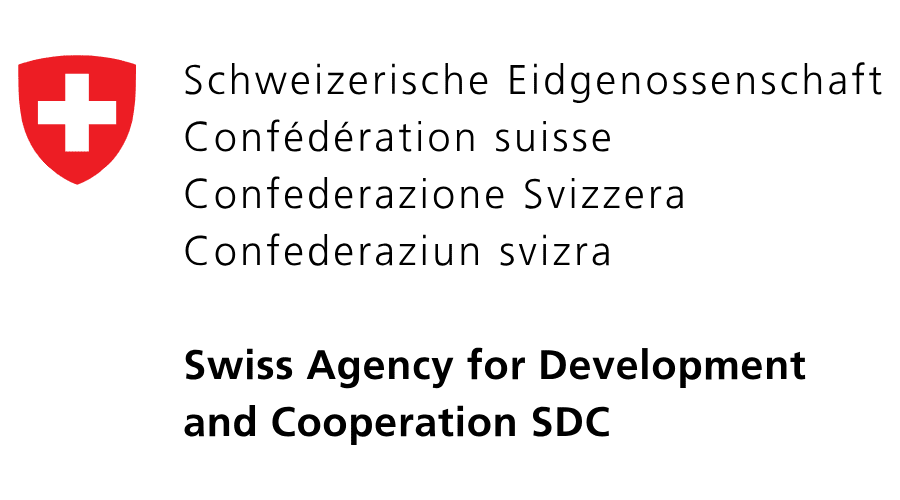WITH DOORS CLOSED, ARTISTS GO VIRAL
WITH DOORS CLOSED, ARTISTS GO VIRAL
Open Call
Online
28 May 2020 - 28 June 2020
“With doors closed, artists go viral”
Biweekly program of live art performances
9 pm on Medrar’s Facebook page
The pandemic is changing the art world as we used to know it.
Forced to imposed solitude between the walls of their homes, artists find themselves without a community to engage and interact with. In a state of emergency, artists, more than anyone else, have the capacity to reflect on and reinterpret changing realities. What better time to search for new ways to connect and create?
With this online initiative taking place twice a week, a dozen artists will explore new digital tools to virtually disrupt the current physical restrictions on congregating. Performing live behind closed doors, their artistic creations will go viral to reach wider audiences.
Save the dates and follow the performances!
- Thursday 28/05, Then I run away, Mohamed Abdelkarim + Salah Badis
- Sunday 31/05, #3: A deconstructed fantasy, NAFAQ
- Thursday 04/06, Folkloric Songs: When Erotica Was the Norm, Mahmoud Atef
- Sunday 07/06, Conspiracy, Mona Gamil
- Thursday 11/06,
Death Spells, Mena El Shazly & ongoing project - Sunday 14/06, Chatrooms: Or, How to Set Up for a Group Discussion in an Online Space, Engy Mohsen
- Thursday 18/06, 22/17, Islam Elnebishy
- Sunday 21/06, The sound of memes, Soheir Sharara
- Thursday 25/06, Interweave, Mercedes Melchor and Abdelraheem Mohammed
- Sunday 28/06, Soap chess, Fatma Elzahraa
Then I run away
Dj lecture-reading / playlist. By listening to Raï music and reading texts and songs, artists Mohamed Abdelkarim and Salah Badis look into notions of Diaspora, Migration and Eroticism.
Mohamed Abdelkarim
A Cairo-based visual artist, he is committed to performative practices through multidisciplinary research, concerning perceptions of narration, singing, dancing, detecting and acts.
Salah Badis
Based in Algeria, he writes fiction and essays and translates from French. He is interested in the history of Rai music and loves to swim in the Mediterranean.
#3: A deconstructed fantasy, NAFAQ
Nafaq is a dance duet consisting of Hanin Tarek and Amina Abouelghar. Both Hanin and Amina started dancing from a young age. They joined swaggers crew in 2015 and in 2016 enrolled in the 3 year full time program of Cairo Contemporary Dance Center.
‘Nafaq 2: under construction’ was their first staged performance created together, which was performed under CCDC and MAAT in 2019.
They have both participated in many performances in the last few years and continue to train, dance, and explore movement together and alone.
Nafaq works on merging a variety of dance types such as Hip-hop, African dance, tap, and contemporary all together and does not wish to be held under any category.
Hanin and Amina have also been leading and teaching their own groove workshops focusing on the basics of hip hop and African dance. This collective was built based on expression, exploration, pleasure, and passion towards movement and dance.
“When sexuality was our normal routine in our songs,” Mahmoud Atef
The performance lecture explains the values of the bourgeois at the table of the language, by researching its exposed layers that were prevalent in songs of joy in the countryside, by knowing Khabib’s personality by reading it himself in his family of rural origin.
Mahmoud Atef, poet, Arabic calligraphy artist and free cultural journalist. Born in December 1983 in Najrij village, Basion Centre, Western Governorate. He loves Amr Diab, and he fears the sea.
Its first book, “This Time Has Won”, was released in August 2014 by Rawafed Publishing House, and its second book, “On the Edge of the World”, soon won the second prize in Al-Fahhi’s poetry with the 2016 Cairo Literature News.
Conspiracy, Mona Gamil
Conspiracy asks the question: Who writes history in the age of the internet? Drawing on the tropes of science fiction and mystery, Conspiracy abandons the notion of an objective voice of history. Rather, it seeks to give a platform to the multitude of theories that arise in people’s minds, agitated by a lack of trust in the mass media, and repressed by censorship, theories inevitably channel their way into expression through one means or another. The safety of web anonymity offers an ideal environment for such theories to thrive. Conspiracy takes inspiration from these theories to create a multifaceted, multimedia performance that explores the lengths to which people will go to “make sense” of chaos, to create an archive of ideas that are as true as they are false.
Mona Gamil is a Cairo-based Irish Egyptian artist, and choreographer. Gamil earned her B.A. in Art from the American University in Cairo and M.A. from the National College of Art and Design in Dublin, where she researched the applications of cyborg theory to augmented reality theatre and contemporary dance. Gamil draws on live performance, visual, and sound installation to explore questions of identity, ambiguity, and power. Her recent works include Safe Art Practice, a tongue in cheek guide to achieving professionalism and creative bliss in the arts (New York/ Berlin), and Notes From A Rehearsal (Dublin).
Death spells, Mena El Shazly & ongoing project
Death spells is an international food and afterlifestyle TV channel owned by Mena El Shazly & ongoing project. The free-to-air channel broadcasts talk shows and advertisements dealing with parallel promises of immortality made by ancient Egyptian rituals and social media. The channel’s motto is “And you defeated mortality, and became a star in the sky, shining eternally”.
Mena El Shazly is a visual artist and researcher concerned with entropy, the body and sensitive surfaces that carry knowledge and memory.
ongoing project was founded by Chris Herzog, Lisa Schwalb, Alma Wellner Bou, Alexander Bauer and Ferdinand Klüsener at the Institute for Applied Theater Studies, Gießen in 2009. They use the field of performance to look into social concerns
Chatrooms: Or, How to Set Up for a Group Discussion in an Online Space by Engy Mohsen
We navigate virtual spaces every day. Rooms, meetings, hangouts, groups, stories, posts, email threads, voice notes. Houseparty. These spaces are built on an internet connection and maybe a front camera. There was a moment in time when we would link up with others online just to pass time. Then, it became a necessity, to make up for our longing for any form of human connection.
A lecture performance in three acts that looks at how we used to interact with virtual encounters before, during and after socially-distant times.
Engy Mohsen (b. 1995, Egypt) is an architect and visual artist based in Cairo. While spatial design remains at the core of her practice, she also works with discursive acts, conversation as a medium, text, photography, painting, and performance. She is exploring notions of ‘participation’ and ‘collectivity’ by designing formats of meetings that invite non-artists and artists to produce knowledge about how spaces can be organized to include the ‘other’. She has a bachelor’s degree in Architecture and participated in Roznama Studio Program and MASS Alexandria. Her works have been part of group shows in Abu Dhabi, Alexandria, Amman, Beirut, Ramallah, Cairo, London, and Venice.
Don’t watch
Directed by Islam Elnebishy
Performed by Amr Shalaby, Abdelrahman Ahmed, Islam Elnebishy
The crowd, so many opportunities, so much information, so much pain and frustration, tired of looking for something. War? War is war. Rattling, nothingness. Little value and meaning. Emptiness, hard to endure and to sit with yourself, unable not to do and not having to do.
I am tired!
How to reconcile and continue?
And what about all these videos everywhere, all these scenes, all these stories, where do I stand among all this.
The more you watch, the more lonely you will be.
This momentum, and the anger… in reality? Or just inside me?
Do not reconcile or watch.
The sound of memes by Soheir Sharara
When the isolation began, we were ready. We spent the previous years building our new personas behind the closed doors of an alternative virtual reality. A new space to reflect and coexist together ruled by algorithmically organized chaos, where the only survivor is a meme. Encrypted, disguised way of communication hidden beneath humor and sarcasm. A defense mechanism in times of defeat; a confirmation that one is never alone. “The Sound Of Memes” is a live dance performance; a brief experience of the body, the vessel that carries scars, in which memes deconstruct, decrypt and re-encrypt our modern alienation.
Soheir Sharara, dancer, performer and visual artist. Soheir’s work is mainly based on research, investigating and interrogating daily life associated with the online public sphere. Sharara experiments with different approaches related to image, sound and text in the absence/presence of the body. Artworks were exhibited in Cairo Video Festival, Townhouse gallery in Cairo, Egypt, as well as MADATAC Festival in Madrid, Spain and Timeline BH International Video Art Festival in Brazil.
Interweave by Mercedes Melchor & Abdelraheem Mohamed
Interweave is a piece that attempts to discover the interaction space between different types of dances, movements and cultures and evoke nostalgia for some traditional music genres and expressions while combining them with contemporary movements. This piece emerged from the idea of encompassing different elements and the possibility of finding the connection between them.
Mercedes Melchor is a Spanish freelancer Flamenco and Funky dancer and performer from Ávila. She started to dance Flamenco and Spanish dance at the age of 6 and became a dancer and member of the cultural association “Emma Lucena” in 2002. She is also a Martial Art practitioner and a full-time student at “Meshkah”.
Abdelraheem Mohamed is a freelance Contemporary Dancer and Martial Artist. He graduated from Cairo Contemporary Center and “Meshkah” Martial Arts School. Apart from being a Contemporary Dance teacher, he has performed with local and international choreographers since 2013.
Soap Chess – work in progress
“Soap Chess” is a work-in-progress multidisciplinary performance. It explores aspects of the life of a twenty-year-old woman who puts herself in self-imprisonment to protect herself from what is happening in the outside world. A bearable self-imposed-quarantine that we are living in right now to avoid the wrath of the epidemic. We examine her monotonous reality and eventful imagination through a long letter in which she tells her diaries to her friend in prison.
Written and performed by: Fatma El Zahraa
Sound recording and editing: Heidi AL-Sabban “Daddou”
Audio Engineer: Amr Hashem
Queen piece designer: Mohamed Abou Elmaati
Special thanks to: Ahmed Fathy, Hend Moaaz, Mostafa Abdel Aty, Shady Emad.
Fatma El Zahraa has been a performance artist since her childhood. She has worked in several independent theatre groups such as Hala group, Fantasia Group and others. Fatma has worked in “Sawa workshop” in Townhouse Gallery as a trainer for the children’s theatre team for five years. While managing the workshop with the rest of the team, she participated in several physical theatre performances and worked with several directors such as Nourhan Khaled, Hazem Haedar, Monadel Anter, Shady Emad and others.
In 2016, Fatma El Zahraa founded (Transit for Art), a cultural management start-up that provides consulting services to culture and arts professionals in Egypt and the Arab world. Transit has contributed to the management of several art projects for actors, venues and artists. Fatma has worked for several cultural institutions as a culture manager such as Medrar for contemporary art, Bahgaga Band, Luke Lehner studios and Bashkateb Space.
Fatma has a huge interest in writing for theatre, and literary translation, she participated in the translation of films and videos of the ninth session of the Cairo Video Festival and currently, she is working on translating a novel by Inga Abele to be published with Al Mahrousa publishing house.
Medrar is supported by the Arab Fund for Culture and Arts (AFAC) through a grant from the Swiss Agency for Development and Cooperation (SDC).



